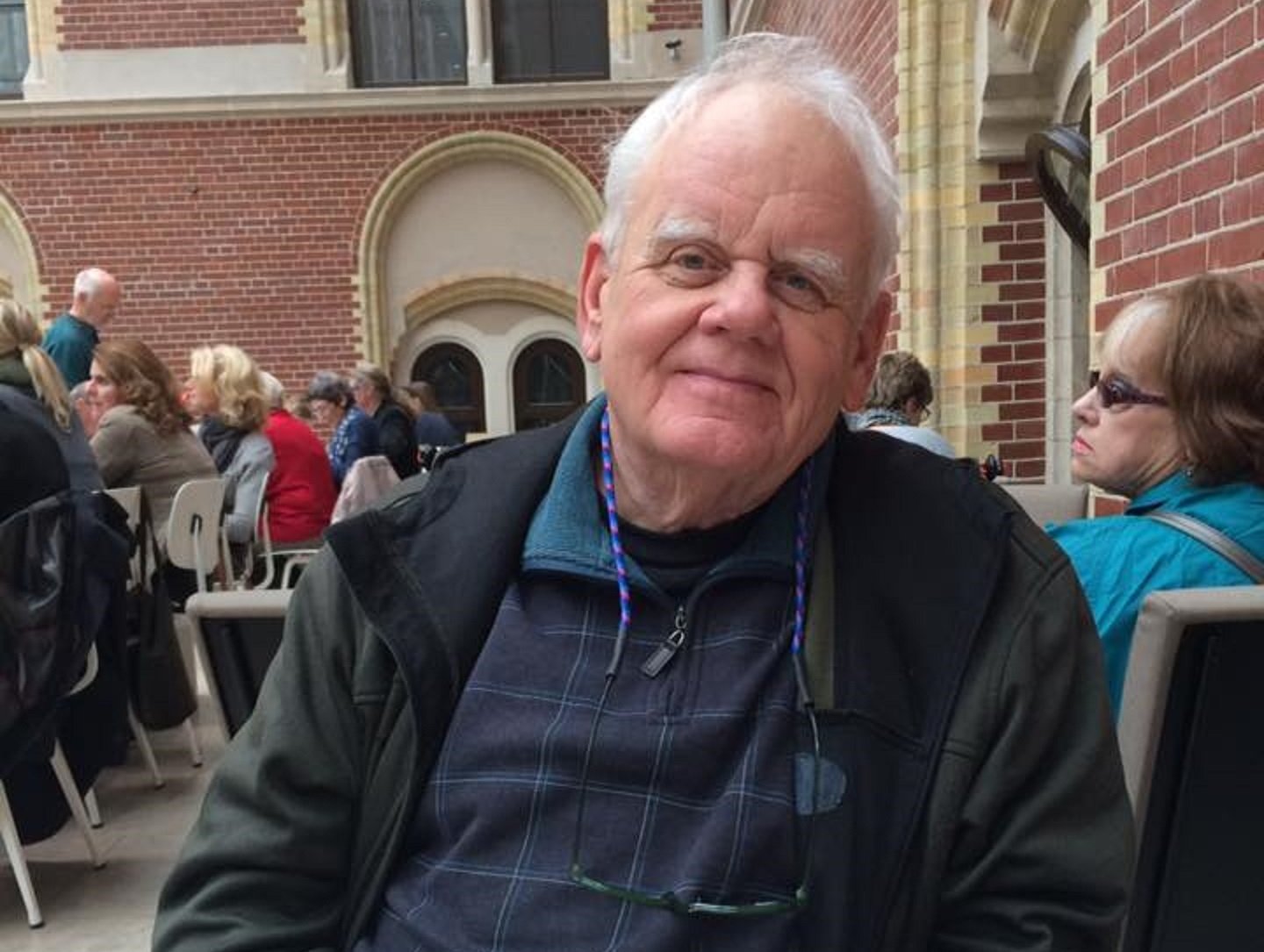
If Dick Maki had a trademark, it had to be his blindingly bright, toothy and ever-present smile. And he almost lost that.
Longtime Minnesota Brass trumpet soloist Roger Grupp said he first met Maki when he joined the corps in 1971, and recalled traveling to the 1971 American Legion National Championships in Houston, Texas.
“We had a big pool party at the motel after not making finals,” Grupp said. “Dick jumped into the pool – and broke his teeth!” (Grupp remembered also jumping into the pool himself and hitting his chin on the bottom.)
Grupp also fondly recalled Maki, who had been a member of Minnesota Brass for some 60 years, as one of the corps’ “best and loudest” singers; he and longtime friend and fellow member Frank Lozar, who died in 2014, were the nominal leaders of a group of corps singers known as “The Gummers.” They specialized in “harmonizing” on World War II-era songs, especially “For All We Know,” which has become MBI’s theme song.
The Minnesota Brass Alumni Facebook page exploded with tributes to Dick as news of his passing spread.
Among other honors, Maki proudly wore his Brassy medallion, indicative of his being entered into the MBI Hall of Fame, and was also a member of the World Drum Corps Hall of Fame.
In addition to playing in the horn line (French horn, baritone, tuba) and being a generous financial donor, Maki held a variety of roles with the corps, including serving as director and treasurer.
Former member Mike Palmquist recalled Maki’s work as treasurer while he was corps director and business manager in the latter 1970s. “I couldn’t have run things without Dick,” Palmquist said. “Every time I was getting too ‘spendy,’ he would slap me back to reality. We had a very close working association.”
Offering “advice” to his successors as corps directors apparently was another role Maki enjoyed. Grupp recalled times when then-director Jeff Burnham would make post-rehearsal announcements, “and Dick and Frank and Larry Wogenson would question just about everything Jeff said. There were some pretty heated discussions after nearly every rehearsal … they were all so passionate about the corps. Having three relatively recent past directors there to hear announcements every week must’ve been tough, but Jeff toughed it out.”
“Well, I wouldn’t say they gave me ‘the business,’” Burnham chuckled. “But they did always have something to say.” Burnham, who was corps director in the late ’60s and early ’70s, recalled, “What I liked about those three guys is I’d listen, then ask questions because they did have a history with the group and were loyal to the corps. Dick really wanted the corps to improve and try to get something going. I used Dick for advice and answering questions … Dick was very good to talk with, he knew the old guard and how to interpret them and diplomatically talk to me.”
Burnham also fondly recalled Maki’s roll as a “transitional” role model as the corps evolved over the years. “No matter what was happening or who was doing something, he would try to find the good in what they were doing. He would broadcast it, but he had respect for everybody.”
As an example of Maki’s dedication, Burnham noted his decision to move from French horn, which he’d played for many years, to tuba/contra bass. “He really struggled to learn the contra, but he worked his ass off to do it. I really respected that.”
A memorial service for Dick Maki, who died May 12 (a week before his 83rd birthday), will be held at 1 p.m. June 3 at St. Michael’s Lutheran Church, 1660 W. County Road B, in Roseville, Minn. Visitation begins an hour earlier.




Excellent tribute to an outstanding individual.